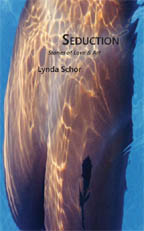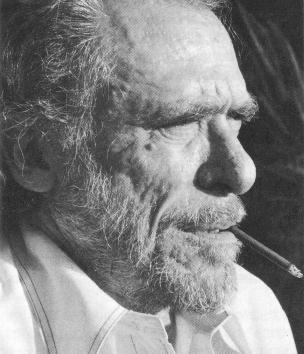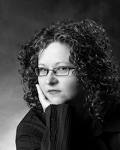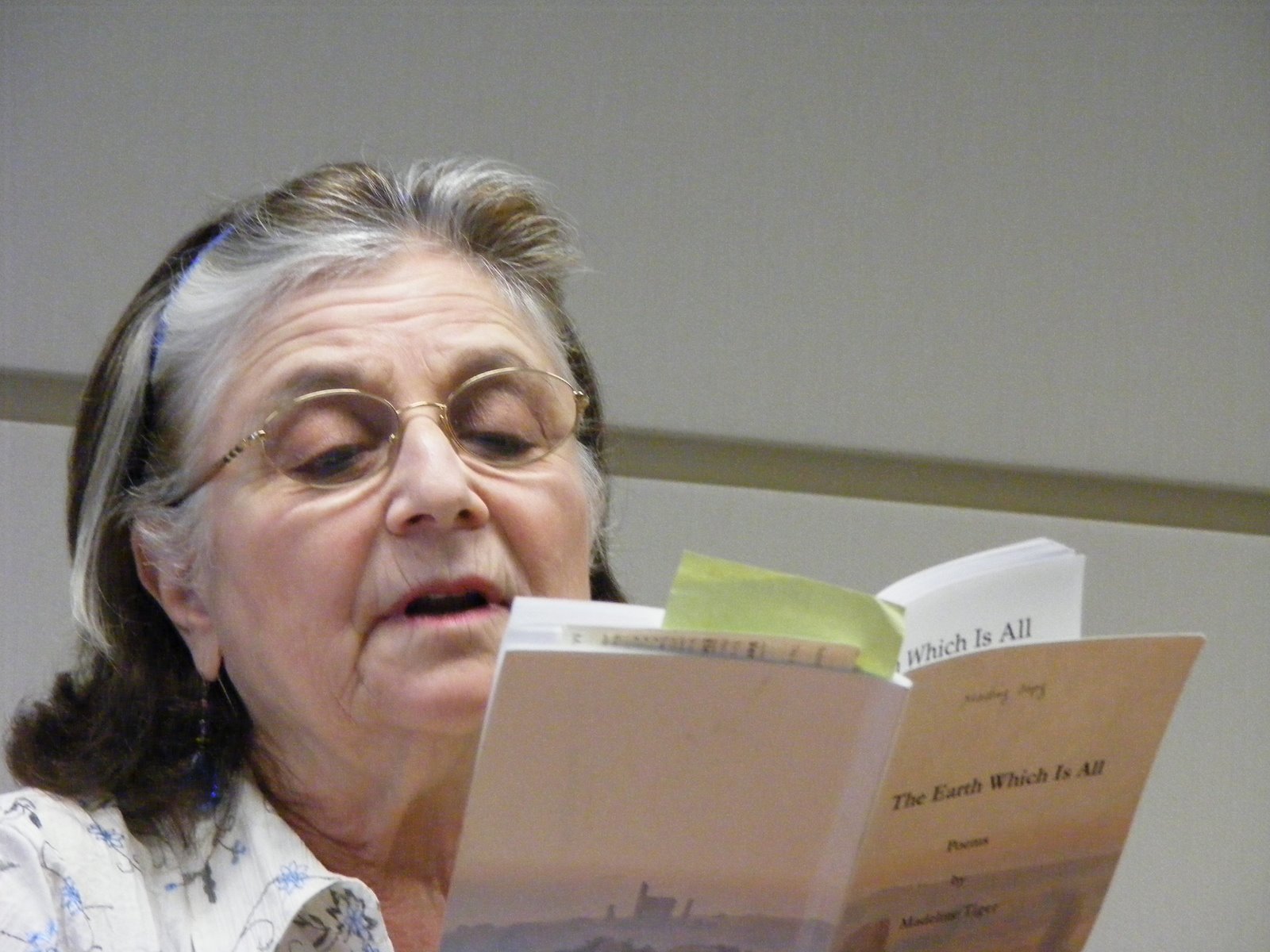Meredith Sue Willis's
Books for Readers #130
April 7, 2010
MSW Home
For a free e-mail subscription, click here.
Note: If you want to link to something in this newsletter,
you should use the permanent link here
rather than this page, which changes each issue.
Featured This Issue:
Jeffrey Sokolow's Reviews
Suzanne McConnell's Reviews
Carrie Tucker's Reviews
New Book by Lynda Schor
New Book by Ed Myers
I’m offering an ONLINE SUMMER SOLSTICE MASTER CLASS on June 21, 2010; June 28, 2010; July 5, 2010; and July 12, 2010. This is a class for writers who are already working on or trying to restart a project of prose narrative like a novel, a memoir, or stories. It is filling up fast, so if you want more information, fees, and how to apply, please see the website at http://www.meredithsuewillis.com/mswclasses.html.
Here are some short reviews by me, followed by recommendations from others. As usual, my spring is full of student fiction to read, public schools to visit, and – this year especially!– lots of family and garden and local political action. Thus I find myself depending even more than usual on recommendations from people. Recently, several books I’ve read have come via contributors to this newsletter, especially an old comrade, Jeffrey Sokolow (see his notes below), and from Shelley Ettinger (see her blog).
Shelley suggested FIRE ON THE MOUNTAIN by Terry Bisson, from the sub-genre of science fiction called alternative history. In this novel, John Brown’s plan for a nation of escaped slaves in the Appalachian mountains actually happens. Having just been through a couple of books about Brown and also the underground railroad, and also just passing the 150th anniversary of Brown’s raid on Harper’s Ferry, I was delighted with the concept. Bisson essentially creates his world just as Brown would have wanted it: Lincoln is a failure because his desire to hold the union together at all costs fell apart; the slaves not only win their freedom, but an entire nation, where everyone is called a “N’African.” My favorite parts are sections in the past. Bisson does very nicely with the fictional letters of nineteenth century people, good imitations/illusions of the style, and good stories– much better, I think, fact, than his more or less contemporary alternative world with the widowed pregnant black anthropologist and her teenage daughter. The Mars landing going on at the same time the characters are learning details of the past feels a little thin to me, the way well-meaning science fiction often does– but the civil war era letters and memoirs are beautifully wrought, and well worth reading.
Moving from alternative history to all-too-real history, I read at Jeffrey Sokolow’s suggestion THE CHANGING FACE OF ANTI-SEMITISM: FROM ANCIENT TIMES TO THE PRESENT DAY by Walter Laqueur. This is one of those brilliant short books from Oxford University Press, not officially one of their “Short Introductions,” but it has that same quality of a general lecture from someone of magisterial learning. Especially useful to me was the separation of anti-Semitism into categories: the garden variety xenophobia of ancient times and continuing (we hate everyone who isn’t us!) versus the religious anti-Semitism that followed the invention of Christianity (the Jews killed Jesus!) to the racialist anti-Semitism of the Nazis and others (Jews are a different, lower race!). It’s a brief, readable, and generally excellent introduction to the topic. My only objection, and I think this is a factor of its very compactness, was a sense of claustrophobia: everything is either about who hated the Jews, how they hated the Jews, or why they hated the Jews. For example, Laqueur only mentions black Americans in the context of black anti-Semitism, without even a nod to the ravages of slavery and racialism versus people of color. I also felt that when he laid into what he calls “left-wing extremism,” he tended to blend some figures who went over from left wing terrorism into right-wing terrorism (mostly Europeans) with people on the left in general. Also, while he explicitly does not equate criticism of Israel with anti-Semitism– he definitely stops short of that– he still drifts in that direction occasionally, or so it felt to me. It is, however, a really solid survey of a sad subject, and in the end you can’t ask it to be something it’s not.
 Some good new fiction: Lynda Schor’s SEDUCTION is just out with lots of riffs on history and famous writers and others, and the love lives (mostly kinky) of Hitler, Pee Wee Herman, Ronald Reagan, Henry Miller, Grover Cleveland, and more. One story I especially like, “Footnotes,” written in short numbered segments, is about Anaïs Nin and ideas of writing about your life. She asks the amusing but also serious question: is it a real memoir if you have sex to enliven the writing, and does this make art of living or is it that you are living to make art? One very funny story has everyone having sex with Warren Beatty and discussing it. There are some domestic wrangles– family life with step fathers and new lovers, a soccer mom (actually, a swim team mother) who fantasizes (we hope) disasters in the real world as well as a disastrously public attraction to a boy with whom she swims and has sex in the locker room. Schor’s sexy stuff is both extremely vivid and always in service of an exploration of what is real and what is true– and whether those are ever the same thing. She frequently begins with something factual from the news or books, then goes off in a conventionally fictional expansion or elaboration of the facts, and finally– usually sooner rather than later– you realize we have gone way out there to the margins of the known universe. When these stories are at their best, and it is more often than not, you are thrilled to take the trip.
Some good new fiction: Lynda Schor’s SEDUCTION is just out with lots of riffs on history and famous writers and others, and the love lives (mostly kinky) of Hitler, Pee Wee Herman, Ronald Reagan, Henry Miller, Grover Cleveland, and more. One story I especially like, “Footnotes,” written in short numbered segments, is about Anaïs Nin and ideas of writing about your life. She asks the amusing but also serious question: is it a real memoir if you have sex to enliven the writing, and does this make art of living or is it that you are living to make art? One very funny story has everyone having sex with Warren Beatty and discussing it. There are some domestic wrangles– family life with step fathers and new lovers, a soccer mom (actually, a swim team mother) who fantasizes (we hope) disasters in the real world as well as a disastrously public attraction to a boy with whom she swims and has sex in the locker room. Schor’s sexy stuff is both extremely vivid and always in service of an exploration of what is real and what is true– and whether those are ever the same thing. She frequently begins with something factual from the news or books, then goes off in a conventionally fictional expansion or elaboration of the facts, and finally– usually sooner rather than later– you realize we have gone way out there to the margins of the known universe. When these stories are at their best, and it is more often than not, you are thrilled to take the trip.
A new young adult novel that is, in contrast, frankly, deeply realistic and straight from memory, is Ed Myers’s FAR FROM GRINGOLAND. Myers is a world class story teller, and I got caught up and read for a whole evening, rapidly. The publisher is marketing this book as a novel, but it is clearly memoir or close to it. Still, I was glad for the classification as y.a. because it gave me faith that things would have a reasonably happy outcome, and I really, really cared about the seventeen year old boy narrator and the Mexican family he lives with for a summer. I don’t think I’ve ever read before about the tension between a person with some money and people with almost no money– people who are actually in daily contact and like each other. He handles this very  well from the point of view of the young person just discovering the conflicts.
well from the point of view of the young person just discovering the conflicts.
And finally, a couple of older books: From the twentieth century comes Charles Bukowski’s POST OFFICE, my first book by that California working-class Bohemian transgressor. What I really like is the bald-faced conviction verging on simplicity of his world view. So much of life and art is (truly) subtle and complex or even fuzzy, but this guy (at least when he’s sober) has clarity. The language is clear, what happens is clear. The book was recommended by a young woman in one of my classes who said she admires his work because he shows you can love life even when it’s crummy.
 And from the nineteenth century– I reread Turgenev’s Fathers and Sons, (was this Shelley’s recommendation too?). This was like a new book to me. Turgenev didn’t approve of throwing out all the babies of Russian culture with the bathwater of modern science, but his story is the personal tragedy of an indulged but brilliant and attractive young boor who discovers that he is subject to emotions he has rejected as passé and unscientific. So whatever bourgeois ideology motivated Turgenev, it falls away. It’s not that art is better than saving lives or feeding the hungry, but that there’s no competition. The making of beautiful things, the telling of stories– these are as natural to human beings as songs to birds staking out their nesting territories.
And from the nineteenth century– I reread Turgenev’s Fathers and Sons, (was this Shelley’s recommendation too?). This was like a new book to me. Turgenev didn’t approve of throwing out all the babies of Russian culture with the bathwater of modern science, but his story is the personal tragedy of an indulged but brilliant and attractive young boor who discovers that he is subject to emotions he has rejected as passé and unscientific. So whatever bourgeois ideology motivated Turgenev, it falls away. It’s not that art is better than saving lives or feeding the hungry, but that there’s no competition. The making of beautiful things, the telling of stories– these are as natural to human beings as songs to birds staking out their nesting territories.
BOOK EVALUATIONS BY OTHERS:
Carrie Tucker recommends two books. “The first is TELEVISION, by Jean-Philippe Toussaint. If you're not familiar with him, he's a Belgian novelist with a typical quirky Belgian/French style, combining philosophy and humor. I believe almost all his novels have been translated from French to English. TELEVISION is the story of a French academic living in Berlin, attempting to write his book on the artist Titian. He decides to give up watching television, as he feels it's interfering with his writing, and TELEVISION becomes a discourse on the interference of, well, television in our daily lives. It sounds dry, but it's very funny and engaging, I promise! TELEVISION is also a great...almost reassuring, perhaps....reflection on the difficulty of writing and all the things that distract us from it.
“The other book I'd like to recommend is THE TENANT by Roland Topor. Topor was a French illustrator, writer, and filmmaker - as a matter of fact, THE TENANT (published in 1964) is the novel that the Polanski film was adapted from. If you haven't read the book or seen the film, THE TENANT tells a rather creepy story of a young man who moves into a dead woman's apartment, and all the strange occurrences that he subsequently experiences. It deals with identity and how one perceives the concept of "self" - and again, that may sound rather dry, but Topor's writing is anything but.”
Suzanne McConnell says of KEEP YOUR HEAD DOWN by Doug Anderson, “Gritty, eloquent, smart, and inspiring. Anderson's memoir is like fiction at its soul-searching, page-turning, best. I can't put this memoir down. It will speak to anyone who's interested in the trajectory from self-bewilderment to actualization. It will especially speak to vets, baby-boomers, alcoholics, anyone in the arts. The section on Vietnam competes with the best literature about it: puts you there, makes you understand the fear, self-preserving mind-set, and disorientation. Anderson captures the sixties and seventies through his own odyssey. A terrific mix of the interior and exterior, his journey is hard won. It makes me want to keep on keeping on. A poet and actor, Anderson applies those talents as a writer. His ear for the right word, his concision and sense of dramatic timing are superb.”
And Jeffrey Sokolow writes about several different Odysseuses: “Ever since I first read it in high school, the ODYSSEY has been my favorite book, and periodically I reread the wonderful translations by Richmond Lattimore, Edward Fitzgerald, and Robert Fagles. I find recurrent pleasure in reading of the wily Odysseus, his travails in crossing the wine dark sea, and his many adventures. In recent years, I’ve taken to listening to the Fagles translation as recorded by Ian McKellen. What could be better than listening to the epic poem narrated by Gandalf himself? It doesn't get better.
“Although my kids loved me telling them stories from the Odyssey before they could read it, they did not share my enthusiasm when they read it in high school, as they found it alarmingly sexist that Odysseus got to sleep around with nymphs and sorceresses while Penelope had to remain pure. In vain did I point out that one cannot decline an invitation to bed an immortal and that ultimately the steadfast Odysseus rejects eternal life with an immortal beauty (and also the prospect of marriage to a nubile mortal) to return to his middle-aged matronly wife. Maybe they will see the romance in that when they are older.
“When I saw the rave reviews of the new book by Zachary Mason, THE LOST BOOKS OF THE ODYSSEY (Farrar, Strauss, and Giroux, 2010), I was eager to read it. While waiting for my local library to get a copy, I reread Margaret Atwood’s THE PENELOPIAD: THE MYTH OF PENELOPE AND ODYSSEUS (Canongate, 2005). Atwood's book is a clever feminist reimagining of the Homeric epic from the point of view of Odysseus’ wife, Penelope (or, to be more precise, from that of her spirit speaking to us from the afterlife). Instead of being the back story, Penelope’s life history occupies the central place while different versions of Odysseus’ adventures – did he force the sorceress Circe to restore his crew to human shape or was he really hanging out in a fancy whorehouse sponging off the madam? did he put out the eye of a monstrous cyclops or was he in a fight with a one-eyed barkeep over an unpaid bill? – flit in and out as backdrop to Penelope's life back in Ithaca. Atwood’s most daring act of literary revisionism is to imagine that the dozen maids who slept with the avaricious suitors and insulted their mistress were acting on Penelope’s instructions and that their deaths were thus totally undeserved. The spirits of the maids act throughout as a kind of Greek chorus whose satiric songs break up the narrative. THE PENELOPIAD is a clever, amusing, absorbing read.
“I wish I could say as much for Mason's book, but I confess that postmodernism is utterly lost on me. The clever conceit of THE LOST BOOKS OF THE ODYSSEY is that it comprises alternate versions of the story that circulated before the classic text as we have it was fixed. Thus Odysseus returns in one chapter to find Penelope married, in another to find her dead, and in still another to find her with multiple lovers whom she then kills. Odysseus sets out to recruit Achilles for the Trojan war, finds that he has died of a snake bite, and constructs a golem warrior following the procedure later used by Rabbi Judah Lowe of Prague. And so on and so forth. The writing is vivid, and some of the stories are memorable, but the overall effect is less than the sum of the parts. I'm probably a hopeless philistine but I was disappointed. Time to reread the original. You can't improve on perfection.
“Speaking of perfection, listen to Loreena McKennitt singing "Penelope's Song." O the joy.”
GOOD STUFF ONLINE
Shelley Ettinger on writing fiction with political impact: http://readwritered.blogspot.com/2010/04/back-to-question-at-hand.html
Tricia Idrobo’s blog The Power of Story http://triciafressolaidrobo.blogspot.com/
Elmore Leonard’s funny rules of writing, plus those of Margaret Atwood and others:
Rules of Writing .
Barbara Crooker poems at http://www.gravitypullsyouin.com/ and http://www.wordgathering.com/issue13/poetry/crooker.html
Amit Sehgal has a new site called COMPARE BOOK PRICES at http://www.bookase.comhttp://www.bookase.com . He says it’s a free service, allowing you to easily compare prices of any book among major online bookstores worldwide, and find a price which is 30% - 80% off the market list price.
NEWS, EVENTS, AND UPCOMING

Neva Bryan’s new book SAWMILL BOYS: POETRY & SHORT FICTION is just out from Brighid Editions. SAWMILL BOYS is a collection of 26 poems and two short stories that offers an earthy and sensuous glimpse of Appalachia: the place and its people. It honors the region’s landscape, explores its history, and reveals its culture. Learn more at www.nevabryan.com.
Mary Jane Hayes novel for children EMMA'S HOUSE OF SOUND is available. Learn more at http://www.emmashouseofsound.com.
A guest post on Dory Adams’ blog IN THIS LIGHT by Misko Kranjec’s guest post, “Lens and Pen as Mirrors, " Lens and Pen as Mirrors” was a semifinalist for the 3 Quarks Daily prize. Contest info and the ful list of semifinalists at 3quarksdaily.com.
 Madeline Tiger’s latest collection of poetry THE ATHEIST’S PRAYER is coming out from Dos Madres Press in April. Madeline says, “The more I worked on assembling this collection, the more I realized how poems are prayers. These poems speak through visions and memories, through teaching experiences, folk tales, Biblical stories, and my responses to visual arts. Many of the poems are experimental in form and style; but the process is spiritual: the poems move toward what I can hold, and they teach me what to trust. It’s no coincidence that the title poem is a rush of language, a passionate declaration —of disbelief, and of belief.” Poet and critic Eric Hoffman called the title poem “stunning, emotionally shattering,” and he wrote “I could hear echoes of Ginsberg.” Tiger’s poetry has been praised by Alicia Ostriker, Gerald Stern, and many more. For information on ordering, see http://www.dosmadres.com
Madeline Tiger’s latest collection of poetry THE ATHEIST’S PRAYER is coming out from Dos Madres Press in April. Madeline says, “The more I worked on assembling this collection, the more I realized how poems are prayers. These poems speak through visions and memories, through teaching experiences, folk tales, Biblical stories, and my responses to visual arts. Many of the poems are experimental in form and style; but the process is spiritual: the poems move toward what I can hold, and they teach me what to trust. It’s no coincidence that the title poem is a rush of language, a passionate declaration —of disbelief, and of belief.” Poet and critic Eric Hoffman called the title poem “stunning, emotionally shattering,” and he wrote “I could hear echoes of Ginsberg.” Tiger’s poetry has been praised by Alicia Ostriker, Gerald Stern, and many more. For information on ordering, see http://www.dosmadres.com
1 comment:
You were really helpful to me in many ways. I have searched the websites provided and were amazing ! thanks a lot
Post a Comment